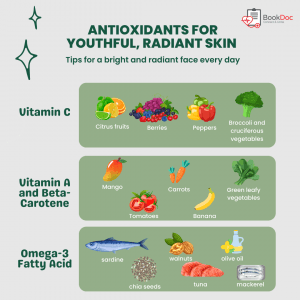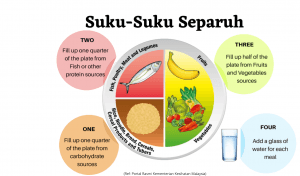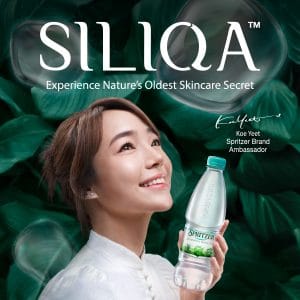
Collagen
Achieving youthful, glowing skin is a goal shared by many, and our skin’s natural resilience relies heavily on collagen, a protein that gives it structure and elasticity. Yet, as we age, collagen levels naturally decline, leading to common signs of aging, like fine lines, wrinkles, and sagging. Luckily, one mineral is stepping up as a must-have in our skincare and dietary routines: silica.
What is Silica? And how Collagen Works Together with SIlica for Skin Health
Water is one of nature’s purest gifts, but not all water is created equal. Hidden beneath the surface of pristine landscapes lies a vital mineral that enhances the power of hydration: silica. Silica is foundational to various natural materials we encounter daily, including quartz, glass, and sand. Over time, it gradually dissolves into water systems as it filters through layers of soil and rock, adding valuable minerals to the water. These trace amounts of silica are absorbed by our bodies through drinking water and certain plant-based foods (Colombo, 2022). Yet, silica’s role extends well beyond its geological presence. Within the human body, it aids in the production of collagen, a protein crucial for maintaining skin elasticity, strong hair and nails, and healthy bones (Martin, 2007;Sadowska & Świderski, 2020). When our silica levels are balanced, they provide foundational support for collagen, enhancing skin’s ability to remain smooth and youthful over time. But for optimal skin health, silica works best in tandem with other nutrients that nourish and protect skin at a cellular level.
The Power of Antioxidants and additional nutrients for Skin Defense and Youthful, Radiant Skin
Skin is often exposed to environmental pollutants, UV radiation, and stress, all of which create free radicals that damage skin cells over time. Antioxidants like beta-carotene and vitamin C neutralize these free radicals, slowing the aging process and enhancing skin’s natural glow. By protecting collagen fibers from degradation, these antioxidants work with silica to support skin’s elasticity and firmness.

Vitamin C: Essential for collagen synthesis, vitamin C is a powerhouse for skin elasticity, resilience, and brightness. Known to support wound healing and reduce the impact of sun exposure, it helps combat oxidative stress, which can prematurely age the skin. Found in citrus fruits, bell peppers, and strawberries, vitamin C is a staple for glowing skin (Michalak et al., 2021;Pullar, Carr, & Vissers, 2017).
Vitamin A and Beta-Carotene: Vitamin A is known for its ability to promote skin cell turnover, helping skin stay smooth and preventing breakouts. In its precursor form, beta-carotene (found in carrots, sweet potatoes, and pumpkin) acts as an antioxidant, protecting skin from free radicals that damage cells. Together, they help reduce the appearance of fine lines and keep skin vibrant and youthful (Michalak et al., 2021).
Omega-3 Fatty Acids: These essential fats, found in foods like salmon, walnuts, and flaxseeds, contribute to skin’s elasticity and hydration. Omega-3s help maintain the skin barrier, locking in moisture and giving skin a plumper appearance (Michalak et al., 2021).

A balanced diet, such as following Malaysia’s “Healthy Plate” (Suku-Suku Separuh) model, remains the foundation for healthy skin and overall wellness. While these specific nutrients can boost your skin’s health and radiance, they’re best incorporated into a balanced diet that emphasizes variety and moderation to ensure you receive all the vitamins and minerals to have better glowing skin!
Embrace Skin Vitality with Spritzer’s SILIQA™: A Silica-Rich Hydration Experience

Experience SILIQA™, with every sip of Spritzer’s natural mineral water, brings together the benefits of silica for an easy, refreshing addition to your daily hydration. By combining the natural benefits of silica with a balanced diet rich in vitamins A, C, E, and omega-3 fatty acids, you can support skin health at every level. Elevate your daily hydration with the natural power of silica and experience the glow that comes from holistic skin health.
Incorporating silica-rich water into your daily routine, like Spritzer’s natural mineral water, can be an effortless way to support your skin and overall health. Sourced from Malaysia’s pristine rainforests of Taiping, Spritzer’s water is naturally high in bioavailable silica, which the body can easily absorb and use to enhance collagen production. Paired with a nutrient-dense diet, silica-rich water contributes to a balanced approach to hydration and beauty from within.
What Makes Spritzer’s Silica Unique?
What distinguishes Spritzer from other water brands is its exceptionally high silica content—one of the highest globally at 60mg/L. This makes Spritzer’s natural mineral water an excellent and natural source of silica, offering not just refreshing hydration but also significant health benefits. Regular consumption helps meet your body’s silica needs, promoting healthier skin, stronger bones, and more resilient hair and nails.
Experience the SILIQA™ Today! Visit www.siliqa.com for more information.
Acknowledgement*: While there is currently no established Recommended Dietary Allowance (RDA) for silica, research suggests that its potential health benefits remain strong, and there is no known harm in consuming silica from natural sources like Spritzer’s natural mineral water. In fact, a deficiency in silica may be more harmful, as it can lead to issues such as brittle nails, weak bones, and decreased skin elasticity. So why wait? Start incorporating silica into your hydration routine today
References:
- Colombo, D. (2022, October 14). Silicon absorption in plants. Agridaeus. https://www.agridaeus.com/news/silicon-absorption-in-plants#:~:text=Silicon%20is%20taken%20up%20by,polymerizes%20into%20colloidal%20silica%20gel
- Martin, K. (2007). The chemistry of silica and its potential health benefits. The Journal of Nutrition, Health & Aging, 11(2), 94-97
- Sadowska, A., & Świderski, F. (2020). Sources, bioavailability, and safety of silicon derived from foods and other sources added for nutritional purposes in food supplements and functional foods. Applied Sciences, 10(18), 6255. https://doi.org/10.3390/app10186255
- Michalak, M., Pierzak, M., Kręcisz, B., & Suliga, E. (2021). Bioactive compounds for skin health: A review. Nutrients, 13(1), 203. https://doi.org/10.3390/nu13010203
- Pullar, J. M., Carr, A. C., & Vissers, M. C. M. (2017). The Roles of Vitamin C in Skin Health. Nutrients, 9(8), 866. https://doi.org/10.3390/nu9080866













